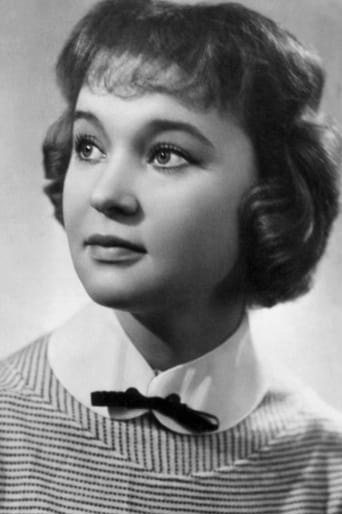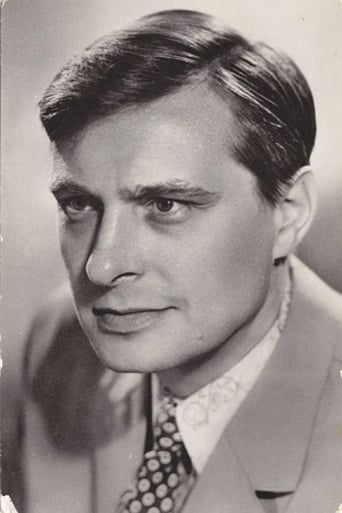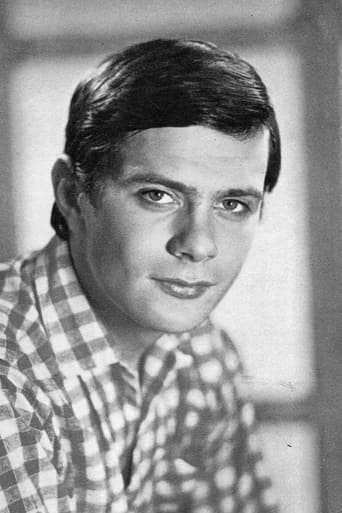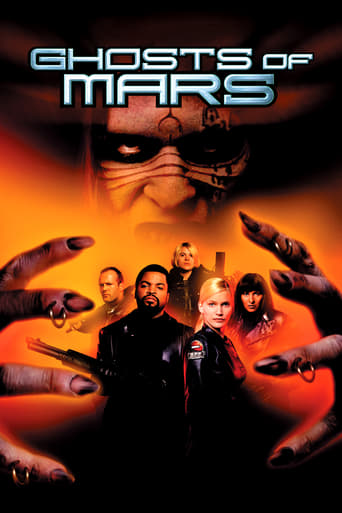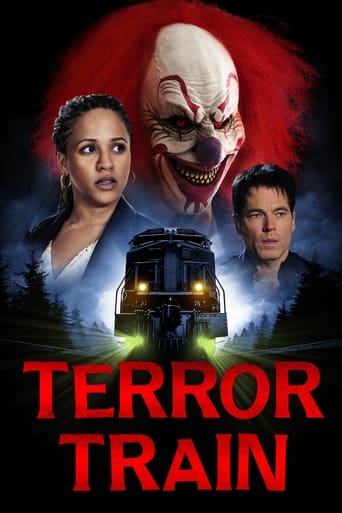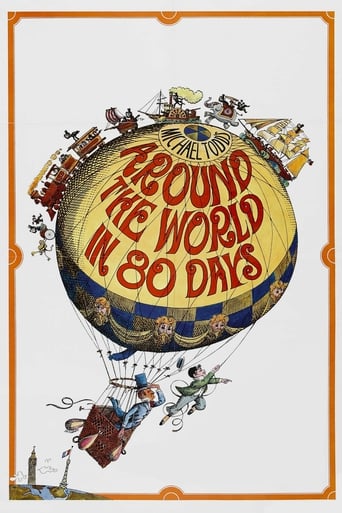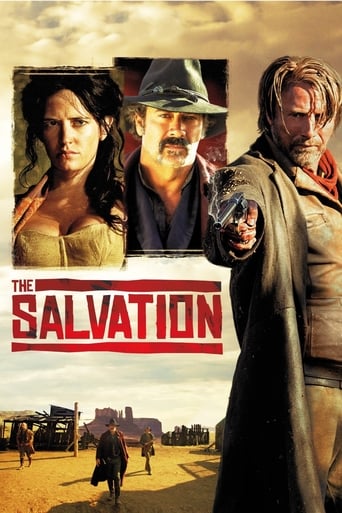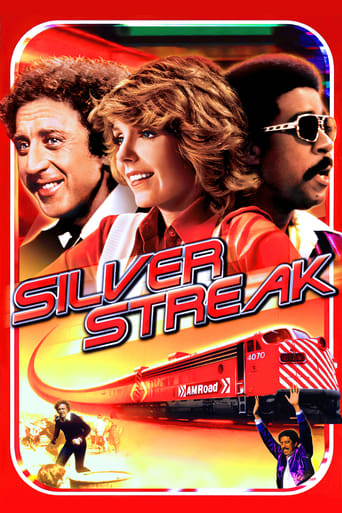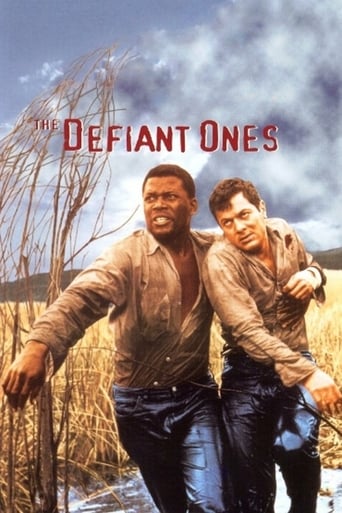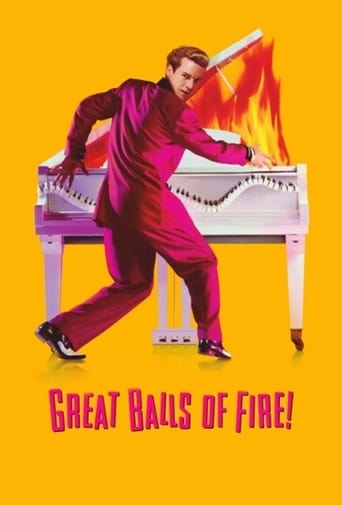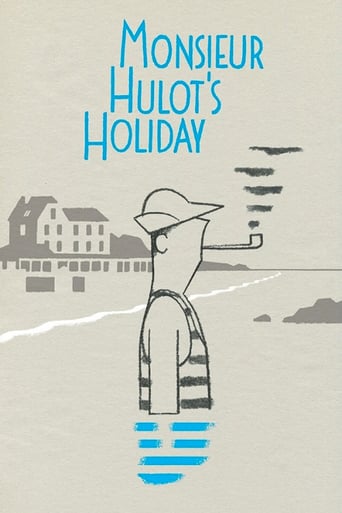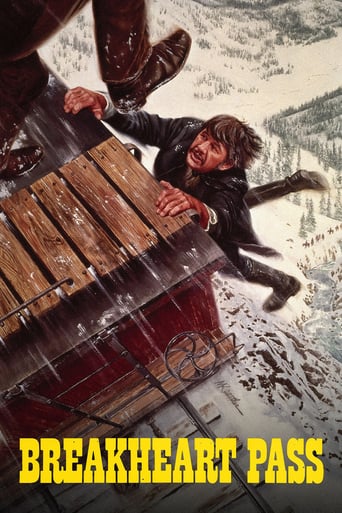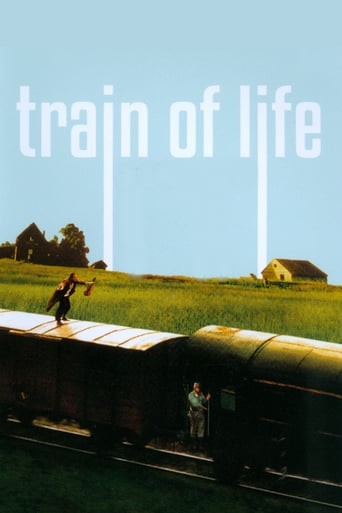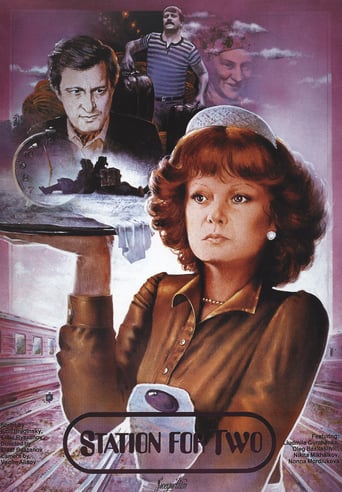
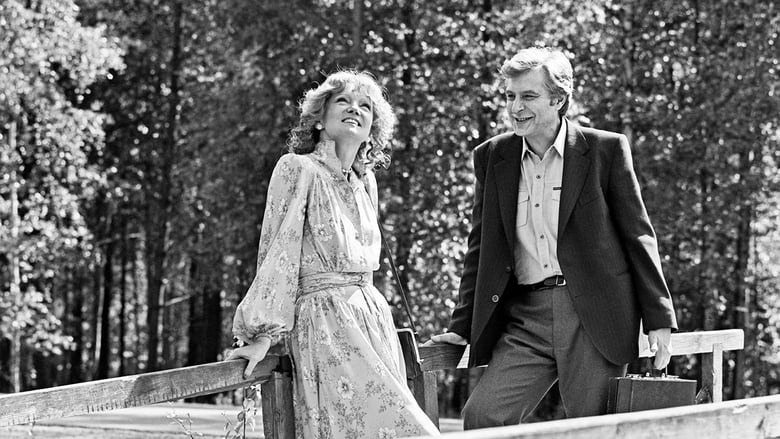
Station for Two (1982)
Platon Ryabinin, a pianist, is traveling by train to a distant town of Griboedov to visit his father. He gets off to have lunch during a twenty minute stop at Zastupinsk railway station. He meets Vera, a waitress, after he refuses to pay her for the disgusting food he doesn't even touch and misses his train due to police investigation of the incident. His passport is then accidentally taken away from him by Andrei, Vera's fiancé, and his money is stolen as he waits for the next train to Griboedov. Vera learns that Platon is about to get sentenced and sent to prison in the Far East for a car accident he isn't guilty for. During the few days that Platon has to spend in Zastupinsk he and Vera develop feelings for each other...
Watch Trailer
Cast


Similar titles
Reviews
It's fun, it's light, [but] it has a hard time when its tries to get heavy.
There is, somehow, an interesting story here, as well as some good acting. There are also some good scenes
The movie's neither hopeful in contrived ways, nor hopeless in different contrived ways. Somehow it manages to be wonderful
One of the worst ways to make a cult movie is to set out to make a cult movie.
Train Station for Two tells the story of two people, Planton and Vera, who meet at a train station and through hilarious mishaps start to fall in love with each other. These mishaps only serve to stress Planton even more, but he finds happiness in the situation with Vera. However, they are unfortunately reminded of their depressing situation at every turn and cannot afford to forget their reality – Planton's impending trial for a crime he did not commit and a subsequent stay in jail, and Vera with her low-paying job, struggling to make ends meet and raise a child after her divorce. This is a very unique film in that it is comedic, yet bittersweet. Although they come from opposing backgrounds Planton and Vera are able to form a solid relationship that doesn't feel contrived and by the end of the film there is still some hope to be found for them. This film also shows integral parts of Soviet life wonderfully with Andrei's profiteering from melons to shoes and the inequality experienced by many people. The role of the train station in this film is pivotal and in the final scenes when Planton and Vera are desperately trying to get back on time it feels like they have finally been freed from the monotony of the train station. The ending scene was very impactful because it was able to condense all of the feeling of the film into this one scene where we have a bittersweet moment when Vera visits Planton, which then turns into a comedic moment as they race to make it back to the prison on time. Train Station for Two is a excellent film that manages to not be cliché for its genre.
Riazanov's Railway Station for Two is a delightfully unique work that jumps between triviality and complexity with a certain grace. On the one hand, the film is a dark comedy about a man for whom nothing goes right, a walking Murphy's law. On the other hand, it is a classic melodramatic romance about a working class woman and a member of the intelligentsia. However, the film is much more than either of these clichés. There is a wonderfully crafted development of relationship at play: over the course of the two or three short days depicted, one is well convinced that these two people have progressed from viciously bickering strangers to being truly in love. Riazanov manages to draw for the viewer the contrasting and overlapping struggles of these disaffected members of opposite social classes with a subtlety that might have been painfully overbearing in the hands of a different director. There are striking sociopolitical aspects to this film as well – casual depiction of the black market, references to the issues of profiteering and shortages, and even outright criticism of communism are remarkable, at least in contrast with earlier Soviet work. The clash of gender equality and tradition also comes into play at several times in the course of the film's brief love affair. All of these themes are dealt with in a wonderfully delicate way, accenting a sometimes saturnine and sometimes playful love story. Elements of Riazanov's style are reminiscent of early Soviet cinema – pressing psychological burdens, long and pregnant silences – in manner that is unfortunately sometimes alienating. The ending sequence in particular, divorced from the train station in which so much of the story occurs, is downright bizarre and troublesomely off-tempo from the rest of the film. The majority of Station for Two, however, is a well-wrought balance of social commentary and bleakly-humorous romance.
Eldar Alexandrovich Ryazanov, the renowned master of comedies, one of the most beloved Soviet and Russian directors, has written/directed during his long career many films that don't get old or outdated. They are beautiful, moving, funny, and unforgettable. Ryazanov created his own style of lyrical comedy which is known for its subtle delicate humor, often imperfect but likable characters, and the atmosphere of love ready to happen in the most unusual places under the least expectable circumstances. Along with lyrical comedy, Eldar Ryazanov wrote and directed some of most powerful Soviet and Post-Soviet satires, such as 'Garazh' (1979), Zabytaya melodiya dlya fleyty (1988) ... aka Forgotten Melody for a Lonely Flute and "Nebesa Obetovannye" or "Promised Heaven" (1991). I've seen almost every one of his movies and I love them all but "Vokzal dlya dvoich" is one of his very best. Touching, funny and heartbreaking, "Vokzal dlya dvoich" is perfect as melodrama/romance; the genre that way too often produces over-sentimental sickly sweet unwatchable duds. In "Vokzal dlya dvoich", Platon Ryabinin (Oleg Basiloshvili), the pianist from Moscow, meets the love of his life when he least expects or needs it. He is going through the most difficult period of his life, spending the last days as a free man and awaiting the trial for the crime he did not commit. His wife was driving their car with him as a passenger, and she accidentally hit and killed a man. Platon said to the police and investigators that he was behind the wheel... While on the train to see his elderly father for what could be the last time, Platon stuck at provincial rail station after a quarrel in the station restaurant with a waitress, whom he saw as loud, vulgar, and disgusting - despite her nice figure and striking face (Lyudmila Gurchenko, Soviet movie superstar and a talented singer and writer). At one point, he finds himself with no proper ID and his valet stolen. Now he has to rely on help and understanding from the very woman who caused his delay and distress. After two days that Platon had to spend mostly at the Zastupinsk rail station in the company of Vera, the waitress, the single mother with a typical sad story, both their lives have changed forever.Nikita Michalkov was remarkable as the obnoxious smug black market dealer - train attendant Andrei, Vera's boyfriend-on-the-move. His two cameos in the movie were brilliant. Basiloshvili and Gurchenko were simply great together, never playing a single false note in this melody for two lonely hearts and the rail station. The film is funny, lyrical, satirical, bittersweet, and dramatic, often at the same time but its final scene when Vera and Platon meet again after she has traveled 7000 km by train, plain, and truck to the Siberia camp where he was serving time is amazing in its emotional power. It is not easy to recall another scene that reveals so much love, loyalty, readiness to go through all possible and impossible obstacles just to be with one you love - for good, for bad, forever - through the eyes of a woman who simply sits at the table and watches her beloved eating or rather wolfing the food that she prepared just for him. Masterful and heartbreaking.
I keep this movie on the top of my favorite Soviet movies. Typical Russian dark humor and sharply piercing plots, right into heart of human love.No other director has done so well in the balancing popularity and literary art. The beauty is plain, but keeps coming back to your memory.I grow up in China but and this title is imprinted into my memory of the wandering time, a seemingly peaceful time, with undercurrent of our human fates in the vast system, and hence the life without a border.Centrel Russia ( west Siberia) has never been so vivid, and never be so warm. It requires some traveling in the vast inland to fully understand the beauty.


